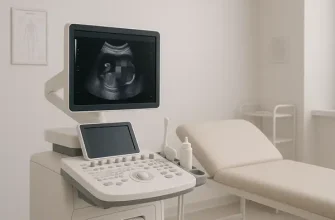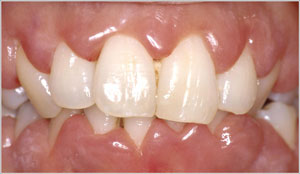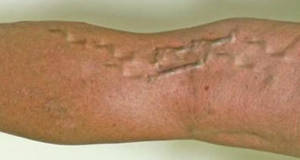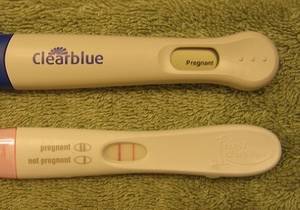Pregnancy is always full of surprises, but what if you think there might be more than one baby on the way? Twin pregnancies come with their own set of early indicators—some more obvious than others. This article dives into the key signs that may suggest you’re expecting twins, supported by up-to-date medical information and statistics.
Percentage of Common Pregnancy Symptoms in Singleton vs. Twin Pregnancies
| Symptom | Singleton Pregnancy | Twin Pregnancy |
|---|---|---|
| Extreme Fatigue | 60% | 85% |
| Severe Morning Sickness | 40% | 75% |
| Rapid Weight Gain | 55% | 80% |
| Frequent Fetal Movement | 50% | 70% |
This chart compares the frequency of common pregnancy symptoms between singleton and twin pregnancies, highlighting the increased likelihood of symptoms in twin pregnancies.
Is Extreme Fatigue a Clue?
Everyone knows that fatigue is part of pregnancy. However, many twin mothers report an overwhelming level of exhaustion early on. Wondering if this kind of fatigue might indicate twins? It’s entirely possible. The heightened levels of pregnancy hormones such as human chorionic gonadotropin (hCG) and progesterone may be much more intense when carrying twins, making you feel completely drained.
Are Your Hormone Levels Skyrocketing?
It’s no secret that pregnancy hormones are responsible for many of those delightful symptoms like nausea and fatigue. But in a twin pregnancy, the levels of hCG are often significantly higher compared to a singleton pregnancy. This isn’t just conjecture—studies show that twin pregnancies tend to have hCG concentrations about 30% higher by the end of the first trimester compared to those carrying one baby (American Journal of Obstetrics & Gynecology, 2021). These elevated hormone levels can amplify symptoms like morning sickness, which brings us to our next question.
Is Morning Sickness Particularly Unrelenting?
Morning sickness can be a misnomer—it isn’t limited to mornings, and it can even feel never-ending, especially if you’re pregnant with twins. For some, the term “all-day sickness” might feel more appropriate. Women pregnant with twins often have more severe nausea, and it’s not just your imagination. Higher hCG levels in twin pregnancies can lead to more frequent or severe bouts of sickness.
Average hCG Levels in Singleton vs. Twin Pregnancies Over Weeks of Gestation
| Weeks of Gestation | Singleton Pregnancy (mIU/mL) | Twin Pregnancy (mIU/mL) |
|---|---|---|
| 4 Weeks | 5,000 | 7,500 |
| 6 Weeks | 15,000 | 22,500 |
| 8 Weeks | 60,000 | 90,000 |
| 12 Weeks | 80,000 | 120,000 |
This chart illustrates the average hCG levels during different weeks of gestation, comparing singleton and twin pregnancies. Higher levels of hCG can indicate the possibility of twins.
Did you know that nearly 50% of women pregnant with twins experience nausea lasting well beyond the first trimester, compared to about 25% of those with a single baby? (Mayo Clinic, 2022).
Are You Showing Early?
Everyone shows differently, but with twins, it’s not uncommon to notice your belly expanding earlier than expected. This is because your uterus has to grow faster to make space for two babies. In fact, some mothers report needing maternity clothes as early as the first trimester. A larger-than-average bump in the first few months could be an indicator that you have twins onboard.
Twin Weight Gain: Is It More Than Expected?
Weight gain is a natural part of pregnancy, but women carrying twins often gain weight faster and sooner than those carrying one baby. The American Pregnancy Association notes that mothers expecting twins typically gain around 10 pounds more overall compared to those carrying a single baby. Remember, it’s not just about baby weight—it’s the placenta(s), extra amniotic fluid, and increased blood volume that all contribute.
Is Fetal Movement More Frequent?
Many moms eagerly await the first time they feel their baby kick. For those with twins, this excitement may be even more pronounced. Some mothers report that they notice more frequent movement earlier on, although interpreting fetal movements can be subjective. Two babies may mean twice the activity—especially as they grow and jostle for space.
An Ultrasound Is the Only Sure Way
While all these symptoms could point towards a twin pregnancy, the only definitive way to know is an ultrasound. Most women find out around the 8-12 week mark if they’re having twins. If your healthcare provider suspects twins due to elevated hCG levels or a larger-than-expected uterus, they may recommend an ultrasound earlier.
Did You Know?
Twins are more common than ever — Thanks to advances in fertility treatments, twin births have increased by over 75% since the 1980s! (CDC, 2023)
Probability of Twin Pregnancies by Maternal Age
| Maternal Age (Years) | Probability of Twin Pregnancy (%) |
|---|---|
| 25 | 1.5% |
| 30 | 2.0% |
| 35 | 3.5% |
| 40 | 5.0% |
This chart illustrates the probability of having twins based on maternal age, showing how the likelihood increases as women get older.
Fascinating fact: About one in every 250 pregnancies naturally results in twins, but for those using fertility assistance, the odds are even higher.
Editor’s Advice
If you suspect you might be carrying twins, it’s always best to communicate openly with your healthcare provider. They can offer guidance on what to expect, how to manage symptoms, and what medical attention you might need during this special journey. Keep yourself hydrated, rest when you can, and focus on your nutrition—your body is doing incredible work supporting not just one, but two growing lives.
Twin Birth Rate Over Time (1980-2023)
| Year | Twin Births per 1,000 Births |
|---|---|
| 1980 | 18 |
| 1990 | 25 |
| 2000 | 30 |
| 2010 | 35 |
| 2023 | 40 |
This chart shows the increase in twin birth rates from 1980 to 2023, highlighting the growing prevalence of twin births over the years.
Remember, every pregnancy is unique, and while these symptoms might point toward twins, only your healthcare provider can confirm it for certain.









